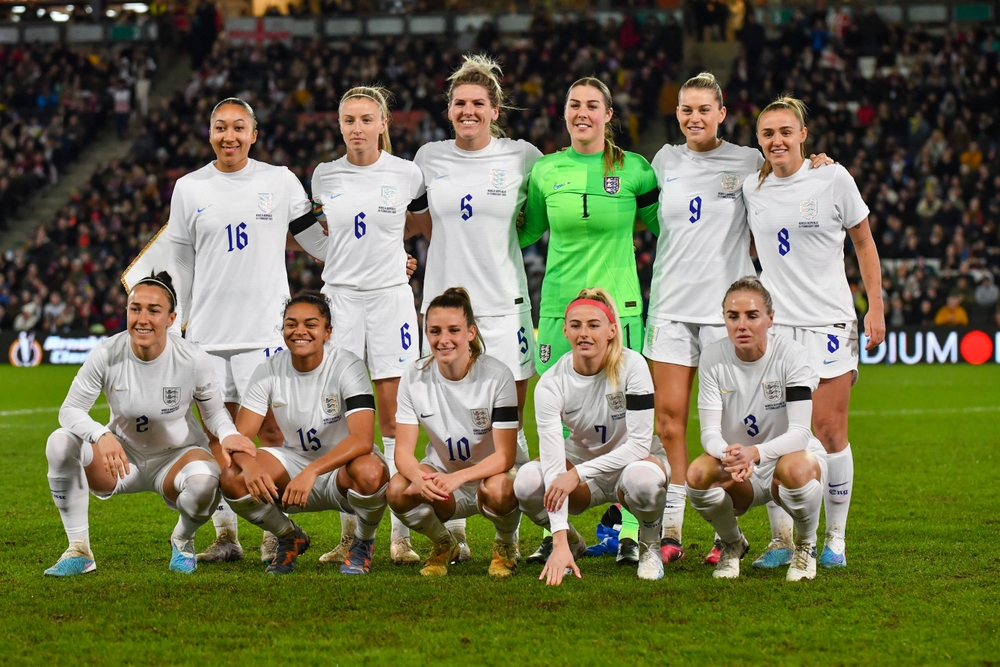This Summer offers a plethora of women’s sports to spectate and enjoy on our TV screens, being played from South Africa to Australia and New Zealand to Britain. As women’s sport is having its moment across the globe, media attention and the ever-dominating men’s sport headlines remain on our screens. Spotlighting all of this summer’s sport- for daughters, nieces, friends, partners, colleagues- is an empowering step to improve representation and positive role-modelling for all.
The sports calendar is filled to the brim this summer, with England’s Lionesses storming into the quarter final of the Women’s FIFA World Cup in Australia and New Zealand this Saturday. Just last week England’s netball team lost to Australia in the Women’s Netball World Cup final, hosted in South Africa. The Women’s Ashes has also come to an end but the Cricket 100s for both genders is starting up again. As the Lionesses continue through the World Cup following their success last year at the Euros, the looming men’s Premier League season is taking up significant media attention too.
Diversity in women’s sport remains a contentious issue. Just last year, England’s Lionesses were criticised for their lack of diversity. This year the story remains much the same, with Sarina Weigman’s squad including just two Black players, Lauren James and Jess Carter. Whilst the FA have committed to improving diversity through strategies such as placing more academies in reach of more diverse areas, the issue of diversity in women’s football remains unresolved.
On this issue in last year’s Euros, former England player Anita Asante criticised the diversity in the team:
“But visibility- or the lack of it- remains the biggest problem… The Twitter backlash – with many users assuming, wrongly, we were criticising Wiegman’s England – suggested too many people are in denial about our diversity problem. They don’t realise everybody needs to be able to dream.”
It is clear that ethnically diverse role models in women’s football are in fewer numbers, but other sports are shifting the dial.
How visible are our female and ethnically diverse role models?
The England Women’s Netball squad on the other hand has much more diversity, with 7 ethnically diverse players in the World Cup squad in South Africa. Whilst this diversity is a positive step for budding netballers, the lack of media attention for women’s sport means these role models exist but are not visible.
Whilst there are efforts to make women’s sport more ethnically diverse, especially within football, efforts also need to be made to ensure these sportswomen are visible in mainstream media. Women’s football has seen much more engagement by the public in recent years, in the UK and globally. Former Australian women’s footballer, Joey Peters reflects on this:
“That’s the beauty of this women’s football journey- it comes from adversity, it comes from a shared feeling that we’ve been through the hard times together. And when then you can see the light and you can see the hard work paying off, you can see hope in the future, it makes it extra special.”
A role model cannot inspire if they are not visible.
How visible are ethnically diverse women in the workplace?
Unfortunately issues in women’s sport are echoed in many workplaces.
Ethnically diverse women continue to be underrepresented in senior leadership positions across organisations, creating a lack of Black female role models. The University of Manchester and Lancaster University conducted research that identified a “concrete ceiling” into senior leadership positions that is “almost impenetrable” for Black professional women. The Women in the Workplace 2021 report, based on 65,000 US employees, found that just 9% of corporate senior manager/director positions were filled by women of colour and promotions were 15% lower for women of colour than white men. Furthermore, executive recruitment and diversity consultancy Green Park have analysed the FTSE 100 through their Business Leaders Index and identified that female and ethnic minority business leaders remain largely in HR, Diversity and Marketing & Communications. It found they hold less influence, have lower salaries and are less likely to be on track to C-Suite roles.
Greater representation of Black and ethnically diverse women into senior leadership roles would benefit society. The PwC Women in Work Index 2022 recognised the economic benefits of this, in an estimated rise in 6% of the UK’ GDP if the female employment rate was to match that of world-leader Sweden. Most importantly, greater representation will create role models to inspire young ethnically diverse women in the workplace. Anita Asante reminds us of the importance of who fills positions of power in society:
“Young girls who cannot see anyone who looks like they do lack heroines to emulate- and that matters.”
Role models matter in sport, the workplace, and society.
Representative role models bring about generational change.
What sport will you be watching over the coming weeks?
Who are your role models?
We would value your thoughts. Please do follow us and join the conversation on LinkedIn
If you want to see change and race equality in the workplace, join the Race Equality Matters’ movement if you are not registered already.
Image – Shutterstock

